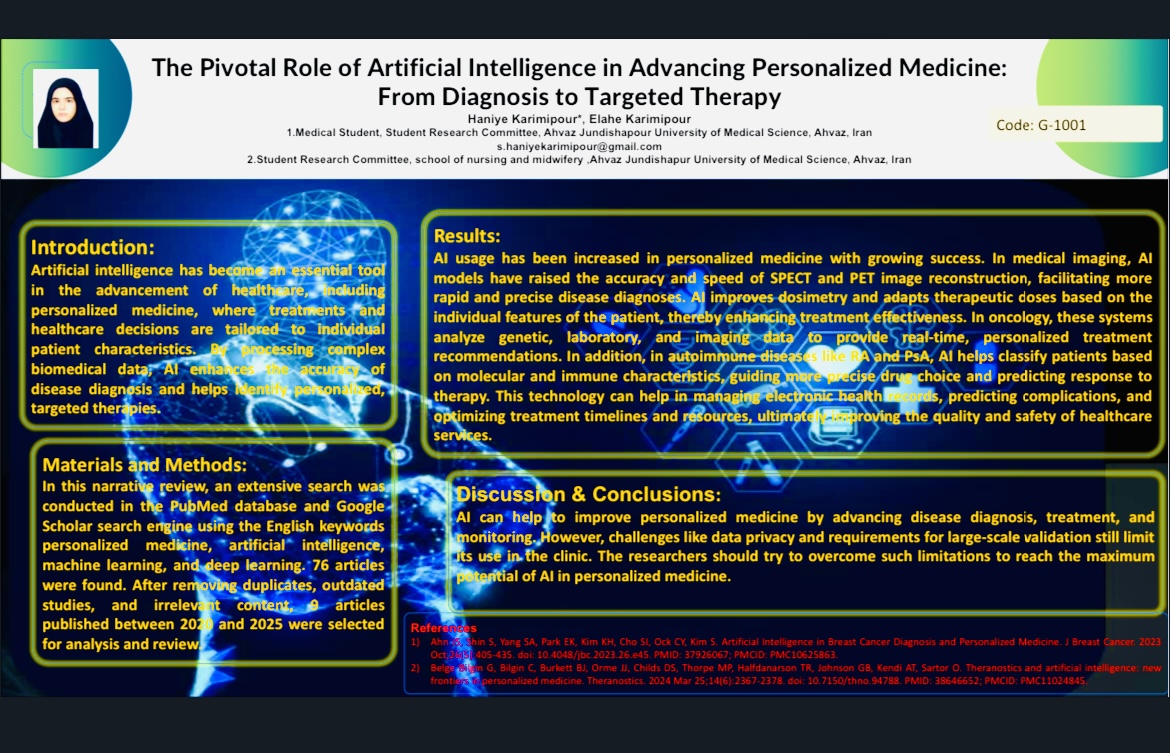The Pivotal Role of Artificial Intelligence in Advancing Personalized Medicine: From Diagnosis to Targeted Therapy
Code: G-1888
Authors: Haniye Karimipour * ℗, Elahe Karimipour
Schedule: Not Scheduled!
Tag: Cancer Diagnosis & Treatment
Download: Download Poster
Abstract:
Abstract
Introduction: Artificial intelligence (AI) has become an essential tool in the advancement of healthcare, including personalized medicine, where treatments and healthcare decisions are tailored to individual patient characteristics. By processing complex biomedical data, AI enhances the accuracy of disease diagnosis and helps identify personalized, targeted therapies. Methods: In this narrative review, an extensive search was conducted in the PubMed database and Google Scholar search engine using the English keywords personalized medicine, artificial intelligence, machine learning, and deep learning. 76 articles were found. After removing duplicates, outdated studies, and irrelevant content, 9 articles published between 2020 and 2025 were selected for analysis and review. Result: AI usage has been increased in personalized medicine with growing success. In medical imaging, AI models have raised the accuracy and speed of SPECT and PET image reconstruction, facilitating more rapid and precise disease diagnoses. It also improves dosimetry and adapts therapeutic doses based on the individual features of the patient and make treatments more effective. In cancer treatment, these systems analyze genetic, laboratory, and imaging data to provide real-time, personalized treatment recommendations. Their algorithms also facilitate early cancer detection by identifying subtle imaging patterns and biomarkers missed by the human eye. AI contributes to tumor prediction and metastasis risk, enabling clinicians to direct individualized therapeutic choice. In addition, in autoimmune diseases like RA and PsA, AI helps classify patients based on molecular and immune characteristics, guiding more precise drug choice and predicting response to therapy. This technology can help in managing electronic health records, predicting complications, and optimizing treatment timelines and resources, ultimately improving the quality and safety of healthcare services. Conclusion: AI can help to improve personalized medicine by advancing disease diagnosis, treatment, and monitoring. However, challenges like data privacy and requirements for large-scale validation still limit its use in the clinic. The researchers should try to overcome such limitations to reach the maximum potential of AI in personalized medicine.
Keywords
Artificial Intelligence,MachineLearning, Deep Learning, Personalized Medicine
